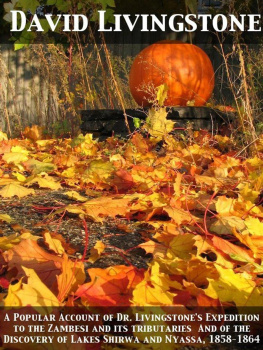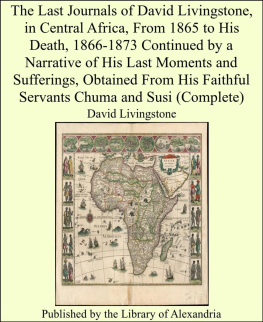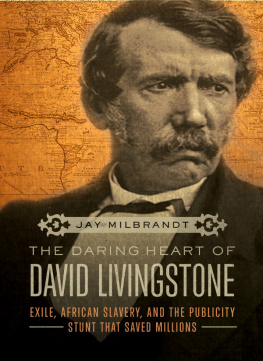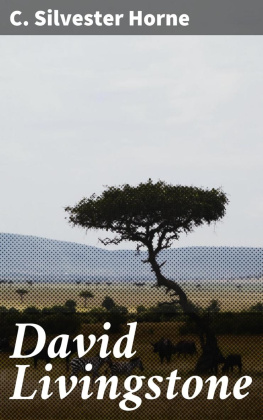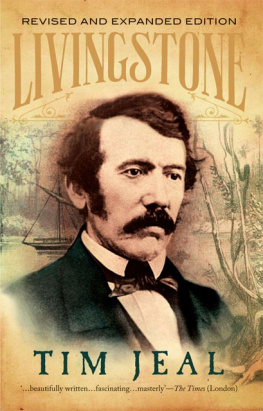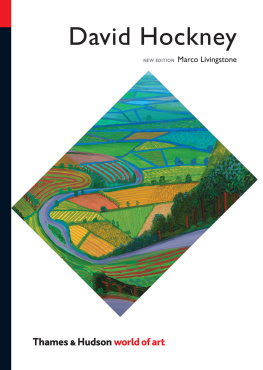Transcribed from the 1894 John Murray edition by David Price, email ccx074@coventry.ac.uk
A POPULAR ACCOUNT OF
DR. LIVINGSTONES EXPEDITION TO THE ZAMBESI AND ITS TRIBUTARIES:
AND THE DISCOVERY OF LAKES SHIRWA AND NYASSA
1858-1864
TO THE RIGHT HON. LORD PALMERSTON,
K.G., G.C.B.
My Lord,
I beg leave to dedicate this Volume to your Lordship, as a tribute justly due to the great Statesman who has ever had at heart the amelioration of the African race; and as a token of admiration of the beneficial effects of that policy which he has so long laboured to establish on the West Coast of Africa; and which, in improving that region, has most forcibly shown the need of some similar system on the opposite side of the Continent.
DAVID LIVINGSTONE.
NOTICE TO THIS WORK.
The name of the late Mr. Charles Livingstone takes a prominent place amongst those who acted under the leadership of Dr. Livingstone during the adventurous sojourn of the Zambesi Expedition in East Africa. In laying the result of their discoveries before the public, it was arranged that Mr. Charles Livingstone should place his voluminous notes at the disposal of his brother: they are incorporated in the present work, but in a necessarily abridged form.
PREFACE.
It has been my object in this work to give as clear an account as I was able of tracts of country previously unexplored, with their river systems, natural productions, and capabilities; and to bring before my countrymen, and all others interested in the cause of humanity, the misery entailed by the slave-trade in its inland phases; a subject on which I and my companions are the first who have had any opportunities of forming a judgment. The eight years spent in Africa, since my last work was published, have not, I fear, improved my power of writing English; but I hope that, whatever my descriptions want in clearness, or literary skill, may in a measure be compensated by the novelty of the scenes described, and the additional information afforded on that curse of Africa, and that shame, even now, in the 19th century, of an European nation,the slave-trade.
I took the Lady Nyassa to Bombay for the express purpose of selling her, and might without any difficulty have done so; but with the thought of parting with her arose, more strongly than ever, the feeling of disinclination to abandon the East Coast of Africa to the Portuguese and slave-trading, and I determined to run home and consult my friends before I allowed the little vessel to pass from my hands. After, therefore, having put two Ajawa lads, Chuma and Wakatani, to school under the eminent missionary the Rev. Dr. Wilson, and having provided satisfactorily for the native crew, I started homewards with the three white sailors, and reached London July 20th, 1864. Mr. and Mrs. Webb, my much-loved friends, wrote to Bombay inviting me, in the event of my coming to England, to make Newstead Abbey my headquarters, and on my arrival renewed their invitation: and though, when I accepted it, I had no intention of remaining so long with my kind-hearted generous friends, I stayed with them until April, 1865, and under their roof transcribed from my own and my brothers journal the whole of this present book. It is with heartfelt gratitude I would record their unwearied kindness. My acquaintance with Mr. Webb began in Africa, where he was a daring and successful hunter, and his continued friendship is most valuable because he has seen missionary work, and he would not accord his respect and esteem to me had he not believed that I, and my brethren also, were to be looked on as honest men earnestly trying to do our duty.
The Government have supported the proposal of the Royal Geographical Society made by my friend Sir Roderick Murchison, and have united with that body to aid me in another attempt to open Africa to civilizing influences, and a valued private friend has given a thousand pounds for the same object. I propose to go inland, north of the territory which the Portuguese in Europe claim, and endeavour to commence that system on the East which has been so eminently successful on the West Coast; a system combining the repressive efforts of H.M. cruisers with lawful trade and Christian Missionsthe moral and material results of which have been so gratifying. I hope to ascend the Rovuma, or some other river North of Cape Delgado, and, in addition to my other work, shall strive, by passing along the Northern end of Lake Nyassa and round the Southern end of Lake Tanganyika, to ascertain the watershed of that part of Africa. In so doing, I have no wish to unsettle what with so much toil and danger was accomplished by Speke and Grant, but rather to confirm their illustrious discoveries.
I have to acknowledge the obliging readiness of Lord Russell in lending me the drawings taken by the artist who was in the first instance attached to the Expedition. These sketches, with photographs by Charles Livingstone and Dr. Kirk, have materially assisted in the illustrations. I would also very sincerely thank my friends Professor Owen and Mr. Oswell for many valuable hints and other aid in the preparation of this volume.
Newstead Abbey,
April 16, 1865.
THE ZAMBESI AND ITS TRIBUTARIES.
INTRODUCTION.
Objects of the ExpeditionPersonal Interest shown by Naval AuthoritiesMembers of the Zambesi Expedition.
When first I determined on publishing the narrative of my Missionary Travels, I had a great misgiving as to whether the criticism my endeavours might provoke would be friendly or the reverse, more particularly as I felt that I had then been so long a sojourner in the wilderness, as to be quite a stranger to the British public. But I am now in this, my second essay at authorship, cheered by the conviction that very many readers, who are personally unknown to me, will receive this narrative with the kindly consideration and allowances of friends; and that many more, under the genial influences of an innate love of liberty, and of a desire to see the same social and religious blessings they themselves enjoy, disseminated throughout the world, will sympathize with me in the efforts by which I have striven, however imperfectly, to elevate the position and character of our fellow-men in Africa. This knowledge makes me doubly anxious to render my narrative acceptable to all my readers; but, in the absence of any excellence in literary composition, the natural consequence of my pursuits, I have to offer only a simple account of a mission which, with respect to the objects proposed to be thereby accomplished, formed a noble contrast to some of the earlier expeditions to Eastern Africa. I believe that the information it will give, respecting the people visited and the countries traversed, will not be materially gainsaid by any future commonplace traveller like myself, who may be blest with fair health and a gleam of sunshine in his breast. This account is written in the earnest hope that it may contribute to that information which will yet cause the great and fertile continent of Africa to be no longer kept wantonly sealed, but made available as the scene of European enterprise, and will enable its people to take a place among the nations of the earth, thus securing the happiness and prosperity of tribes now sunk in barbarism or debased by slavery; and, above all, I cherish the hope that it may lead to the introduction of the blessings of the Gospel.
In order that the following narrative may be clearly understood, it is necessary to call to mind some things which took place previous to the Zambesi Expedition being sent out. Most geographers are aware that, before the discovery of Lake Ngami and the well-watered country in which the Makololo dwell, the idea prevailed that a large part of the interior of Africa consisted of sandy deserts, into which rivers ran and were lost. During my journey in 1852-6, from sea to sea, across the south intertropical part of the continent, it was found to be a well-watered country, with large tracts of fine fertile soil covered with forest, and beautiful grassy valleys, occupied by a considerable population; and one of the most wonderful waterfalls in the world was brought to light. The peculiar form of the continent was then ascertained to be an elevated plateau, somewhat depressed in the centre, and with fissures in the sides by which the rivers escaped to the sea; and this great fact in physical geography can never be referred to without calling to mind the remarkable hypothesis by which the distinguished President of the Royal Geographical Society (Sir Roderick I. Murchison) clearly indicated this peculiarity, before it was verified by actual observation of the altitudes of the country and by the courses of the rivers. New light was thrown on other portions of the continent by the famous travels of Dr. Barth, by the researches of the Church of England missionaries Krapf, Erkhardt, and Rebman, by the persevering efforts of Dr. Baikie, the last martyr to the climate and English enterprise, by the journey of Francis Galton, and by the most interesting discoveries of Lakes Tanganyika and Victoria Nyanza by Captain Burton, and by Captain Speke, whose untimely end we all so deeply deplore. Then followed the researches of Van der Decken, Thornton, and others; and last of all the grand discovery of the main source of the Nile, which every Englishman must feel an honest pride in knowing was accomplished by our gallant countrymen, Speke and Grant. The fabulous torrid zone, of parched and burning sand, was now proved to be a well-watered region resembling North America in its fresh-water lakes, and India in its hot humid lowlands, jungles, ghauts, and cool highland plains.

